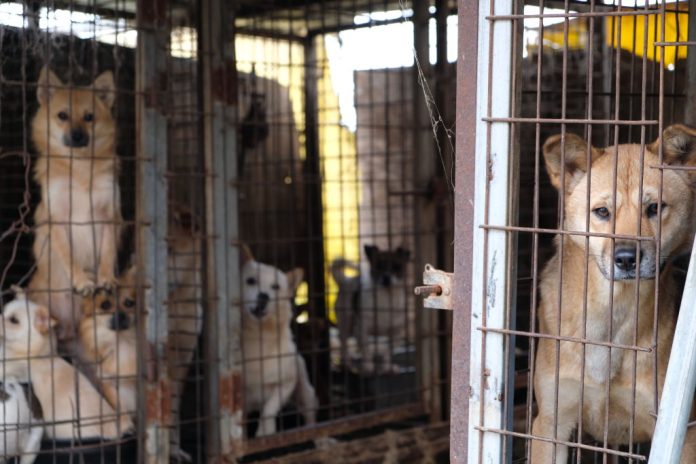More than 200 South Korean farmers who breed and raise dogs for food held a rally outside the presidential office in the capital Seoul on Thursday, demanding the government cancel a plan to ban the controversial centuries-old practice.
President Yoon Suk Yeol’s ruling party has introduced a bill that would ban the breeding and sale of dogs for food. Under the bill, those who are forced to close their businesses during the three-year grace period will receive monetary compensation.
Currently, more than 6 million South Korean families in a country of about 51 million people keep dogs as pets, and Yoon and his wife Kim Keon Hee are the owners of six dogs, including a retired guide dog and a rescue dog.
According to a Gallup Korea poll, nearly two-thirds of respondents oppose eating dog meat, and only 8 per cent said they had eaten it in the past year, up from 27 per cent in 2015. Joo Yeong-bong, who represents an industry group and led Thursday’s rally, said politicians had no right to shut down an industry or decide what people should eat. He noted:
We can’t agree with the idea that it is barbaric, because all countries that have the tradition of animal husbandry have at some point eaten dogs and there are still countries where it’s done.
Although the practice of eating dog meat has declined in popularity, farmers and owners of restaurants that serve it are fighting to make it legal. Farmers have accused First Lady Kim, a vocal critic of dog meat consumption, of exerting what they see as undue pressure on the government and the ruling party to enforce the ban. The presidential office said:
The First Lady has spoken out about this issue with keen interest, and both in the country and abroad there is support and consensus, as well as from the opposition party.
The agriculture ministry declined to provide details on the scale of the industry, but the Korean Edible Dog Association says many more farms and restaurants will be affected than the government has indicated.
According to the association, 3,500 farms with 1.5 million dogs and 3,000 restaurants will be forced to close, nearly double what officials said.
